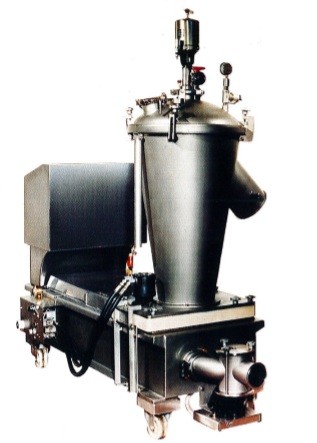Scandals can happen in any industry and can be unexpected, making it hard to know how to take action and mitigate the situation quickly and effectively. As a food industry professional, you may never have to deal with a scandal in your business — but it’s important to understand how to recover effectively just in case you do face this type of situation.
Fixing the issue that caused the scandal and rebuilding the consumer’s trust in your company are the two most important concerns to tackle. By understanding the most effective protocol to get your brand back on its feet, you can recover more quickly from a scandal, no matter what occurred. Listed below are the different ways to effectively rebuild the consumer’s trust in your brand and get your company back in your customer’s good graces after a bad situation.
Acknowledge What Happened
Before attempting to address the general public, take the time to gather all the facts about the scandal. Whether you’re dealing with food contamination or an employee injury at the hands of slicing equipment, learning exactly what happened before you speak out is crucial.
Look into which employees were involved in the scandal, what exactly happened, and who may have been affected by the situation. Take a moment before you publicly react or make a statement to ensure you’ve looked into all factors as well as the repercussions the situation may have on your company.
If your brand has a public relations (PR) representative or firm, now is the time to get them involved and allow them time to analyze the situation. Provide the representative or firm with complete access to the facts of the scandal and the employees involved. With this information, your PR representative should craft a well-written and thoughtful press release about what happened and your company’s stance on the situation.
Make Amends
Once you understand what happened and have completed your investigation, you’ll have some answers for the general public. Your consumers are at the top of your list to make amends with and you can begin mending your relationship with them by:
- Explaining the situation and the actions you plan on taking to ensure it doesn’t happen again.
- Issuing an apology to all who were affected by the scandal, including employees and consumers, if advised by legal counsel.
- Offering compensation to the victims who were involved in the scandal.
- Accepting your punishment as it comes, whether it be fines, sanctions, or other legal actions.
- Providing consumers with special offers to become loyal customers of your brand again, such as discounts, gifts, or coupons.
If you issue an apology, it’s important that your statement is clear and meaningful. If you need to admit fault for the scandal, communicate that your company accepts responsibility for the situation (coordinate with your legal team to get the messaging right for the sake of liability). Outline what you’ll do in the future to ensure it doesn’t happen again. Consider accepting punishment and providing compensation along with your apology to make a greater impact.
Stronger Enforcement of Rules and Regulations
After analyzing the facts of the situation, you should have a good understanding of whether you need stricter regulations within your company or just stronger enforcement of current rules. If you feel your rules and regulations leave room for error, adjust these regulations.
Take the time to revamp your current set of company regulations and the consequences for not following these rules. Communicate your new set of guidelines to all employees throughout the company and ensure they understand these updated regulations.
If you feel your current rules and regulations are strong enough to ensure a similar scandal doesn’t occur again, it’s time to address how your company rules are enforced. To emphasize your current rules and enforce them with your staff, consider:
- Laying out clear expectations for employees, supervisors, and managers.
- Conducting training sessions to ensure all staff understand the new policies.
- Supplying an updated employee handbook and asking each employee to confirm receipt with a signature.
- Reviewing the new steps in the violation policy, such as a verbal warning, written warning, and suspension.
- Going over new procedures with employees individually, such as how they operate the size reduction equipment and other food processing equipment in the building.
Ensure your employees thoroughly understand the new policies, procedures, rules, and the sanctions for not adhering to these guidelines. Allow your employees to voice their concerns about the new regulations and to ask questions.
Aim to Rebuild a More Ethical Environment
Having solid ethics in place and ensuring all employees understand and are passionate about being ethical is the best way to avoid future scandals. When you implement strict ethical practices throughout the company, potential problems are more likely to be brought to your attention and resolved before they turn into bad situations that affect employees’ and consumers’ health or wellbeing.
In the food industry, attention to detail and following specific procedures ensure food quality is maintained. Employees must have a passion for what they do and feel morally and ethically obligated to do the best job they can to keep consumers and fellow employees safe. Whether they’re operating a flame grill or maintaining the settings on a food processing oven, awareness about how their actions affect other people is crucial in avoiding another scandal.
Be Transparent
In addition to taking responsibility for the scandal, it’s important to ensure the general public knows your company doesn’t keep secrets. When you’re fully transparent about what went on with the situation, how your policies have changed to address it, and how your food is manufactured, your brand gains trust with the consumer.
Hold Yourself and Your Company Accountable
If you understand your company is at fault for the scandal, taking accountability for what happened is the best way to approach the situation. If you try to place the blame on someone else, your brand can instantly gain a reputation for not being transparent or trustworthy.
For example, if the reason for your scandal was due to a food processing equipment failure, you may be tempted to blame the equipment manufacturer. However, the general public may see that as you trying to get away unscathed. By taking responsibility for the scandal and communicating the ways you’ll avoid it in the future, such as by purchasing new equipment, consumers regard your brand as responsible and dependable.
In the food industry, a company scandal may feel like the end of your brand. However, if you handle the situation properly and communicate with transparency to consumers, you can save your brand and revamp your company’s image.


















